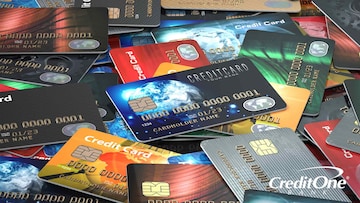Think you’re ready for your first credit card? Whether you want to establish and build a solid credit history, earn rewards, keep a card on hand for emergencies, or use your card as a convenient payment alternative to cash, it’s important to consider whether you’re prepared for the responsibility of possessing a credit card before applying for your first one. Because, once you open a credit card account, the way you use that credit card could have a lasting impact on your finances—for better or worse.
But how do you know if the time is right to step into the world of credit cards? Here are five signs you may be ready to bust a move:
1. You have a steady income.
A credit card is not free money. The purchases you make with a credit card need to eventually be paid back in full—and then some, if you owe interest. If you don’t have a job or other source of income that provides a consistent flow of funds, it can be tough to pay your credit card bill each month.
Missed or late payments and a high credit utilization ratio—which can increase quickly if you don’t pay your balance in full each month—can negatively affect your credit score. If your credit card doesn’t have a grace period, you’ll be charged interest on all purchases made with the card. But even if it has a grace period, if you don’t pay the total amount owed each month, you’ll be charged interest on the unpaid balance carried over into the following month.
If you’re applying for your very first credit card, you may not have much of a credit score, if you have one at all. So any potential card-issuers are likely going to rely even heavier on you having a steady source of income before approving your credit card application.
2. You have a budget, and you stick to it.
While having a steady source of income is necessary to be able to pay your bills, it won’t matter how much money you earn if you continually spend more than you can afford to repay. Before applying for your first credit card, it’s a good idea to practice creating and sticking to a budget each month. If you can do that without being tempted to spend money on things you don’t really need or can’t afford, you may be ready for a credit card.
If you use your credit card as an instant loan to purchase things you don’t have the funding to pay for, you could find yourself with an unmanageable unpaid balance pretty quickly. But if you limit your credit card purchases so they never exceed the funds you have on hand, or what you’ve budgeted for that month, you should be able to make your credit card payment every month and keep your account current and in good standing.
3. You’re ready to start building credit.
A credit card can be a useful tool in helping you establish credit and build a positive credit history if you use it responsibly, which means:
- Keeping your credit utilization low. Many experts recommend keeping this important ratio at 30% or less.
- Paying your bills on time, every time. Your payment history is the most important factor in your credit score calculation.
- Not overspending. Consider using your credit card to buy only what you can pay for in cash. You’ll be able to pay your bill in full each month, which will help keep your credit utilization low, and you won’t get stuck paying excessive interest charges.
- Applying for credit sparingly. More isn’t necessarily better when it comes to credit. One of the factors used in credit scoring algorithms is the amount of new credit you’ve applied for recently. If you apply for too many new accounts, your credit score could take a hit. Every time a potential creditor looks at your credit reports with a “hard inquiry ,” it could lower your credit score by a few points.
4. You’re organized.
It’s easy to lose track of your spending when you pay with a credit card instead of cash. So, it’s important to be mindful of how often you’re pulling out your card to buy something and to keep track of how much you’re spending and what you’re buying. An easy way to track spending is to take advantage of online account access provided by most credit card issuers. You should be able to log in to your account to see your recent transactions.
And don’t forget to pay your bill by its due date. You don’t want to miss a payment because you put the bill in a drawer and forgot to pay it even though you had the money to cover it. If writing a check each month isn’t your thing, consider signing up for automatic bill pay and linking your credit card account to a bank account. Then you won’t have to worry about forgetting, and your payment should always be on time.
5. You’re not interested in “keeping up with the Jones’.”
According to a 2017 CareerBuilder Survey, 78 percent of U.S. workers live paycheck to paycheck and nearly three in four are in debt. So, if your goal is to keep up appearances with the latest fashion, electronics, cars, etc., then there’s a good chance you could wind up in debt, too. But if you’re more concerned about becoming (or staying) debt-free than you are about putting on appearances with fancy clothes or a shiny new car you can’t afford, then you may be ready for your first credit card—and to start using it responsibly.
Getting your first credit card is a big financial decision, and one that could impact your overall financial health. Before jumping in with both feet, take some time to evaluate your current financial situation, your spending habits, and your thoughts and values about money to make sure you’re ready. Only then should you submit that application.
Jennifer Brozic began her writing career at seven years old, when she scribed the epic tale of her kite-flying (and skyward-looking) uncle crossing paths with a deep hole in a sandy beach. After earning a degree in journalism, Jen worked in the insurance and financial services industries before earning a master’s degree in communication management. She left the nine-to-five corporate world in 2010 and has been freelance writing ever since. Her areas of expertise include insurance, financial planning & budgeting, and building credit.




